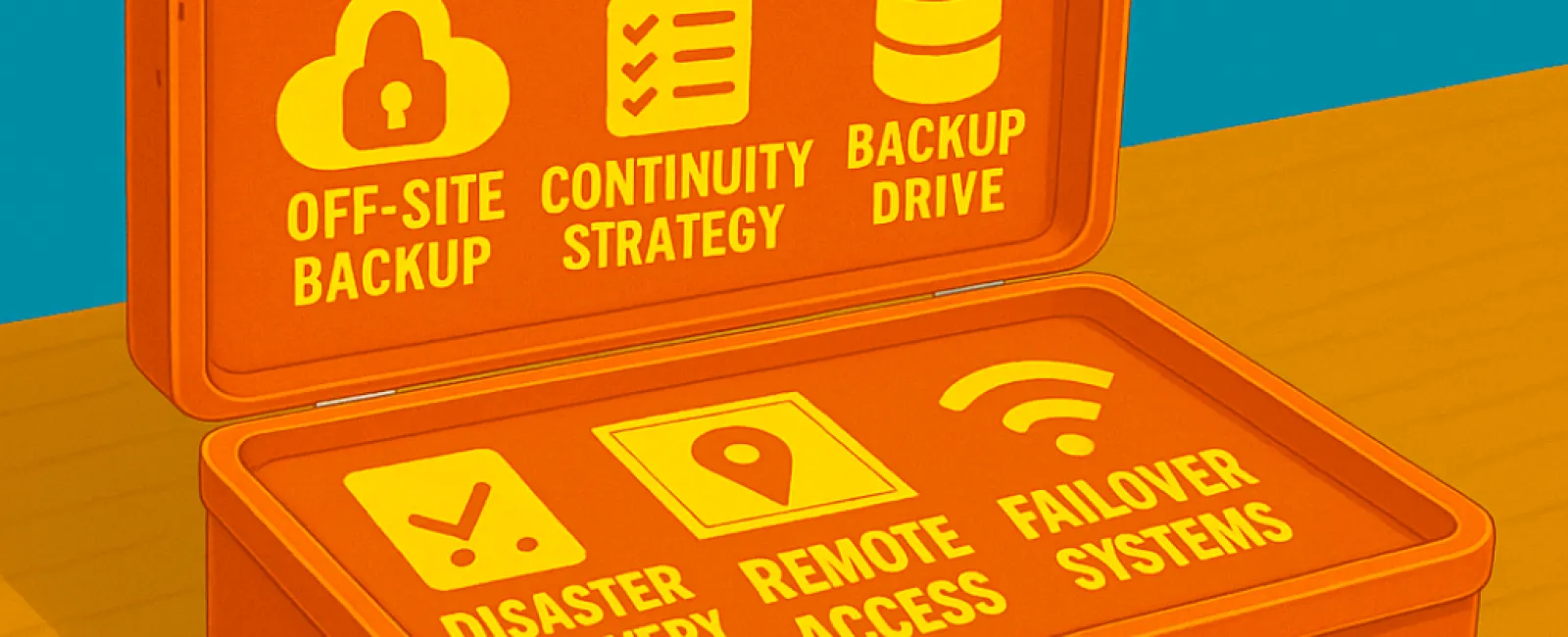July 28, 2025
Unexpected power failures, cyberattacks, equipment malfunctions, and natural calamities can strike without notice, causing severe disruption to small businesses. Many believe that simply having backups is sufficient, but recovering a file isn't synonymous with maintaining business operations. Without access to critical systems, the ability to support remote work, and effective communication with your team and clients, even brief interruptions can lead to prolonged setbacks. A dependable IT partner provides more than just backups—they deliver a comprehensive strategy to ensure your business remains functional under any circumstance.
Beyond Backups: The Essential Role of Business Continuity
Backups are undeniably important, but they represent only one piece of the puzzle. What truly safeguards your business is a robust business continuity plan—a forward-thinking approach that guarantees seamless operation during and after disruptions.
When systems fail, data becomes unreachable, or your workplace is compromised, a backup stored locally offers limited relief. Without a well-defined recovery plan, your business faces significant threats to revenue, reputation, and regulatory compliance.
Understanding the Difference: Backups vs. Business Continuity
Many companies misinterpret their preparedness:
●
Backups focus on data restoration.
●
Continuity ensures uninterrupted business operations regardless of circumstances.
An effective continuity plan addresses critical questions such as:
●
What is our recovery time objective?
●
Where will the team operate if the office is inaccessible?
●
Which systems are critical to operations?
●
Who is accountable for initiating the recovery process?
Key elements include:
●
Secure, off-site, and tamper-proof backups
●
Prioritized recovery goals (RTO/RPO)
●
Preparedness for remote work
●
Redundant infrastructure and automatic failover systems
●
Regular disaster recovery drills
If your IT provider cannot confidently guide you through these critical aspects, your protection is more a matter of luck than strategy.
Could This Happen to Your Business?
This is not a scare tactic—these are real-world events with serious consequences. Recent incidents include:
●
Florida hurricanes forced hundreds of businesses to halt operations, especially those lacking cloud access.
●
North Carolina floods destroyed on-site servers, wiping out months of critical data.
●
California wildfires obliterated entire offices in the Pacific Palisades, many without off-site recovery plans.
●
Numerous small businesses struck by ransomware discovered their backups were either corrupted or untested.
Disasters impact businesses of all sizes daily—not just large enterprises.
Ask Yourself These Crucial Questions Today
If disaster strikes tomorrow, will your business continue to operate?
Inquire with your IT provider:
●
How quickly can we recover from a ransomware attack?
●
Are backups regularly tested, and which systems do they cover?
●
What is the contingency plan if a flood or fire renders our office unusable?
●
Does our continuity plan comply with industry regulations?
●
Can we maintain client services if our team must work remotely?
If you don't have full confidence in these answers, your business could already be vulnerable.
Disasters Are Inevitable. Downtime Is Optional.
While you can't prevent every outage, cyberattack, or natural disaster, you can control how your business responds.
An effective IT partner not only assists in recovery but ensures your operations never miss a beat.
Curious about your current preparedness?
Click Here or call us at 907-865-3100 to schedule your FREE Discovery Call, and let's safeguard your business against downtime caused by disasters.




